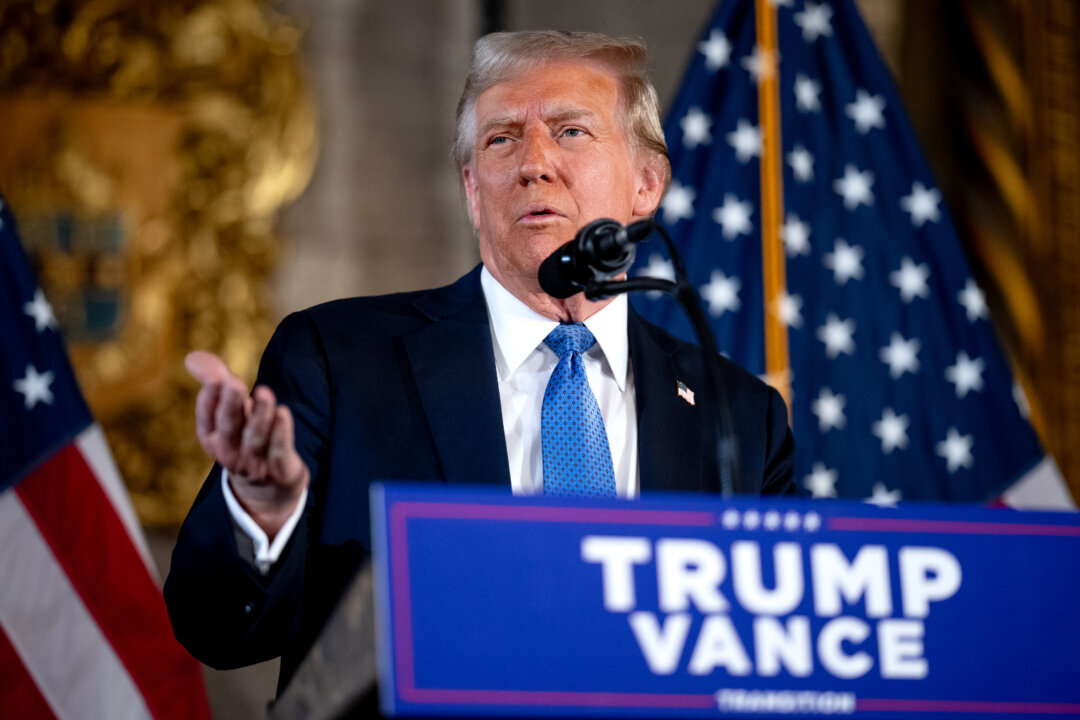
The decision is tied to an earlier U.S. Supreme Court decision that held presidents enjoy different levels of immunity from prosecution for official acts.
New York Supreme Court Justice Juan Merchan rejected on Dec. 16 a long list of immunity-related arguments President-elect Donald Trump made in an attempt to throw out the guilty verdict he received earlier this year.
Trump had argued that Manhattan District Attorney Alvin Bragg’s office improperly used certain evidence, including former White House advisers’ testimonies, since it contained material covered by presidential immunity.
His arguments stemmed from the U.S. Supreme Court’s decision this year in Trump v. United States, which held that presidents enjoy different levels of immunity from criminal prosecution for official conduct. Trump also said that because sitting presidents enjoy immunity from criminal prosecution, Merchan should dismiss the case.
Merchan disagreed in an order and letter to attorneys on Dec. 16. He said that Trump waited too long or failed to preserve objections to evidence and that information related to both preserved and unpreserved arguments did not receive protection under the doctrine of presidential immunity.
“This Court … finds that the evidence related to the preserved claims relate entirely to unofficial conduct and thus, receive no immunity protections,” Merchan said.
“As to the claims that were unpreserved, this Court finds in the alternative, that when considered on the merits, they too are denied because they relate entirely to unofficial conduct entitled to no immunity protections.”
Merchan added that if an error did occur regarding the evidence in question, “such error was harmless in light of the overwhelming evidence of guilt.”
Bragg’s office argued that Trump attempted to conceal payments to adult film actress Stephanie Clifford. Trump has denied wrongdoing and the accusation that he had an affair with Clifford.
Merchan’s letter agreed with Bragg’s argument that Trump, as president-elect, didn’t enjoy the same level of immunity afforded to sitting presidents. This point of the debate focused on a 2000 memo in which the Department of Justice (DOJ) said prosecuting a sitting president was unconstitutional.
Trump had cited that memo and argued that continuing proceedings in the case would disrupt his transition to the White House.
Merchan said in his letter: “The act of rendering a decision, which has been held in abeyance for months, requires no effort on the part of the Defendant and does not implicate the concerns set forth by Defendant in his papers.” The judge also said that the DOJ memo referred to sitting presidents.
Chief Justice John Roberts’ majority opinion in Trump v. United States stated that juries should not consider evidence concerning a president’s official acts. The government’s proposal to allow that consideration, he said, “threatens to eviscerate the immunity we have recognized.”
Merchan held that the underlying conduct was not immune so the highest court’s immunity ruling is not applicable. In his opinion, he stated that it was “logical and reasonable to conclude that if the act of falsifying records to cover up the payments so that the public would not be made aware is decidedly an unofficial act, so too should the communications to further that same cover-up be unofficial.”
Merchan’s 41-page opinion delved into testimonies from Trump’s former attorney Michael Cohen, two former White House advisors, and communications Trump posted to Twitter.
The objections related to Cohen’s testimony and another testimony from former White House staffer Madeleine Westerhout were not properly preserved in the case. While he thought that Trump had timely brought objections to certain testimony from former White House Communications Director Hope Hicks, he said that both that testimony and Trump’s communications lacked the protection of presidential immunity.
Original News Source Link – Epoch Times
Running For Office? Conservative Campaign Consulting – Election Day Strategies!
